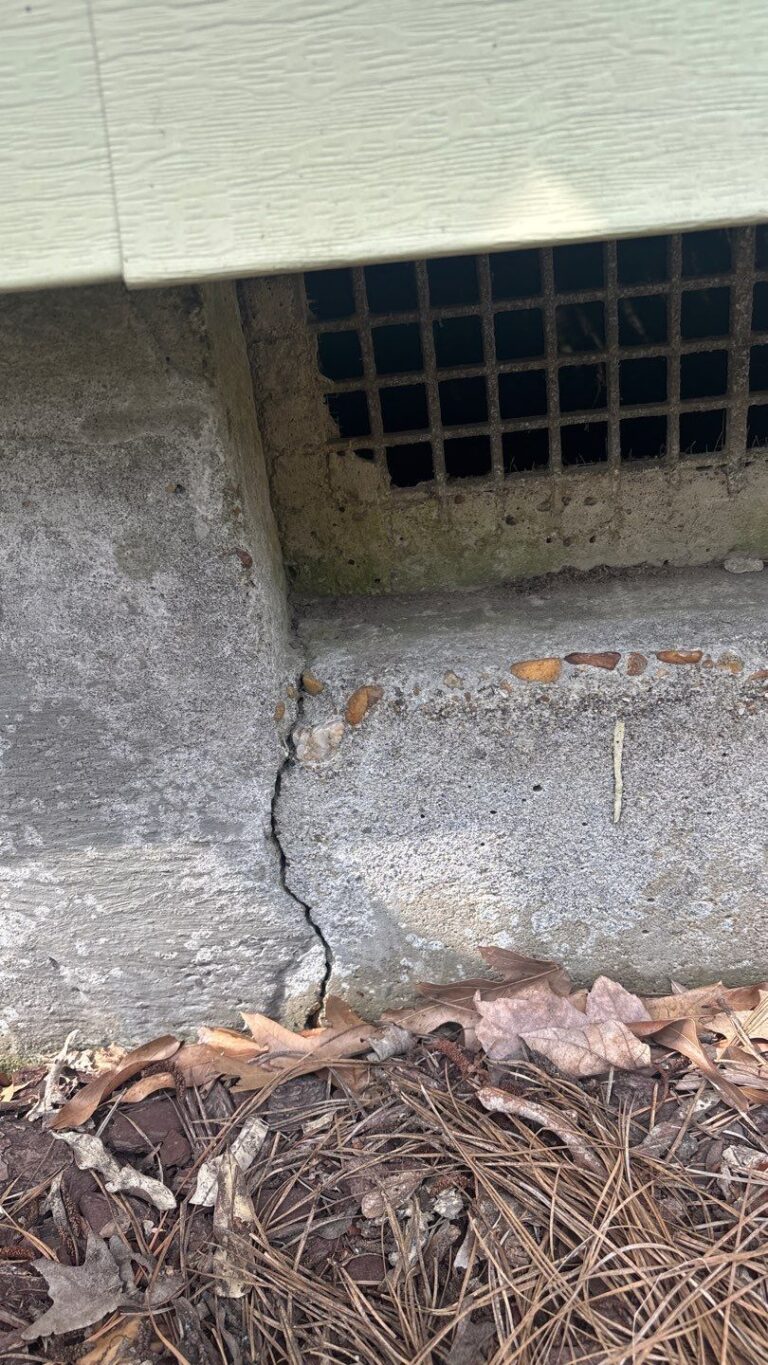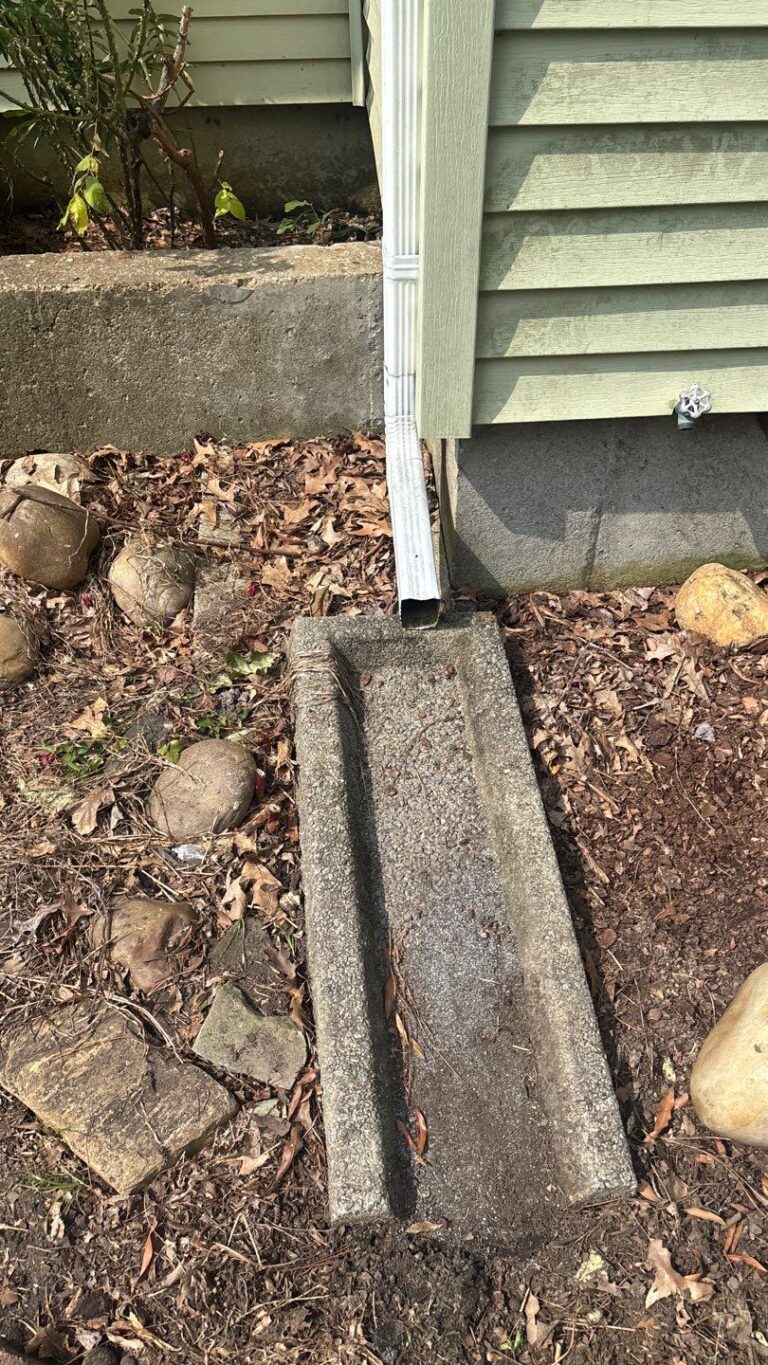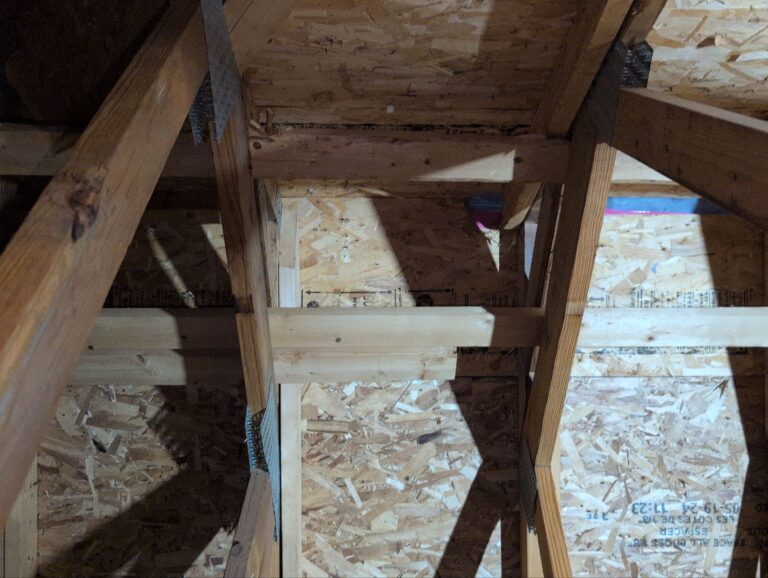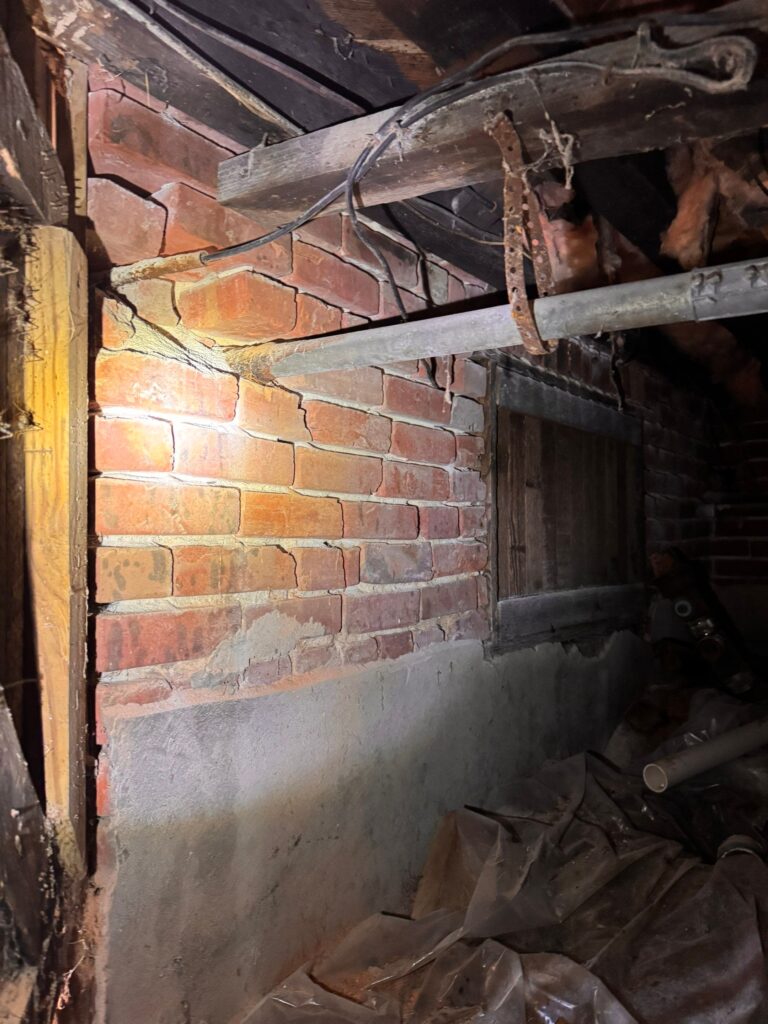Structural Inspection Guide 101: What Virginia Homeowners Need to Know
The Insidious Cracks in the Walls Can Conceal Danger
You walk into the basement and spot a hairline crack along the wall. You ignore it, thinking it’s perhaps “normal.” Months pass, and then a severe storm hits. The same crack widens, water enters, and now your insurance company is requesting a structural report before issuing approval for repairs.
It’s a very common situation homeowners find themselves in.
This is where structural inspections come into the spotlight for Virginia homeowners. These inspections are not merely about identifying cracks, but they’re about revealing concealed dangers, safeguarding your property value, and providing you with state sealed legal reports.
At A Step in Time Structural Engineering, our goal is straightforward: to provide homeowners with well-defined, state-sealed structural engineering reports signed by licensed forensic structural engineers. And why? Minor structural issues, if addressed promptly, can save you a significant amount of money on repair expenses.
This blog will help you understand everything about the structural inspection. Not just that, you will also understand what is covered under the inspection and how state-sealed structural inspection reports play a crucial role at the time of filing for a claim.
What Exactly Is a Structural Inspection?
A structural inspection is a focused examination of the integrity and stability of your home’s foundation, load-bearing walls, roof framing, crawl spaces, and so forth.
While a general home inspection (which checks systems such as HVAC, plumbing, and appliances) scans them broadly, a structural inspection goes deep into:
1. Cause: What caused the damage (soil, water, weather, design)?
2. Mechanism: How was the damage created (settlement, load shifts, drainage)?
3. Extent: What is affected and what repairs are needed?
Only a certified Professional Engineer (PE) has the authority to provide a state-sealed structural report that insurers, appraisers, and courts are required to accept. That’s the distinction between “opinion” and “evidence.”
Why Virginia Homes Need Special Attention During Structural Inspection
Virginia’s climate, geography, and housing inventory present special structural challenges:
1. Expansive Clay Soils (Northern Virginia & Richmond): The soils swell when wet and contract when dry, causing foundation movement.
2. Coastal Storms (Virginia Beach & Hampton Roads): Hurricanes and nor’easters pose wind and water intrusion hazards.
3. Aging Housing Stock: Much existing housing is older than today’s building codes and has no reinforced framing or drainage protection.
4. Freeze-Thaw Cycles in Winter: Frost heaving puts stress on foundations and retaining walls.
According to FEMA, water causes most structural degradation across the country (FEMA.gov). In Virginia, where humidity and flooding are prevalent, structural inspections are a forward-thinking requirement for homeowners.
We, at A Step in Time Structural Engineering, are experienced and licensed engineers holding a high rating and credibility in structural inspections and preparing reports that highlight areas of attention.
Here’s a detailed explanation of what we do when hired for structural inspections.
What We Check During Structural Inspections
When homeowners are told “structural inspection,” they tend to envision someone merely looking for cracks. In fact, a proper structural inspection by our licensed engineers is a multi-layered, detective-type process. Every section is investigated in context, not by itself, so we can inform you of what’s amiss, why it occurred, and how to repair it.
Here’s what our engineers check during a structural inspection:
1. Foundations & Settlement Patterns

What we check: Cracks, uneven floors, and doors that won’t close. We examine soil conditions, drainage routes, and load distribution.
Why it’s important: Virginia’s clay-rich soils expand and contract with changes in moisture, tending to move foundations or making them unevenly.
Example: A Richmond homeowner believed the slight cracks in her basement were not something to be worried about. We found differential settlement resulting from improper drainage and movement of soil. Our report obtained insurance to stabilize before catastrophic structural failure ensued.
2. Drainage & Grading Systems

What we check: Slope of land, gutter and downspout location, water accumulation. We use tools like laser levels, moisture meters, and grading maps in this process.
Why it’s important: Slick grading and poor drainage are stealthy killers. They quietly undermine foundation support and encourage water penetration.
Example: In Fairfax County, we discovered a crawl space with moisture due to downspouts dumping water directly adjacent to the foundation. Changing the water flow and correcting the grading prevented the homeowner from spending thousands of dollars on structural repair work.
3. Roof Framing & Load Distribution

What we check: Rafters, trusses, sheathing, and attic ventilation. Slumped rooflines, broken framing members, or undersized supports are warning signs.
Why it’s important: Roofs in Virginia Beach are subjected to snow loads, wind pressures, and thermal expansion due to frequent coastal storms.
Example: After a tropical storm, a Virginia Beach homeowner experienced a sagging ceiling. Our structural inspection team revealed storm-induced uplift had damaged truss connections. The forensic report linked the damage to the storm’s date of loss, which the insurance company accepted for full roof repair coverage.
Related Reading: Common Roofing Problems Found During Inspections
4. Crawl Spaces, Moisture, & Mold Risks

What we check: Vapor barriers, ventilation, structural supports, and signs of mold or rot.
Why it’s important: Crawl spaces tend to be out of sight, but recurring moisture can rot beams, invite pests, and contaminate air.
We’ve encountered houses where small water leakage in crawl spaces caused fungal growth on floor joists, undermining structural strength. Routine inspection and moisture management avoid such unseen calamities.
One thing that differentiates us from other engineering companies is that we understand the problems of homeowners in Virginia and their pain while filing for a claim.
Pain Point of Homeowners in Virginia: Insurance Denials
Nothing is worse than paying premiums for years only to have your valid claim rejected. Sadly, this occurs all too frequently, not due to the damage not being actual, but because the paperwork is poor, unclear, or not properly substantiated.
The following are the most frequent reasons that result in denied claims:
1. No State-Sealed Reports
Insurers very often deny contractor or unlicensed inspector reports. Why? Only a licensed Professional Engineer (PE) can produce a legally binding, state-stamped structural report that stands the test of insurance, legal, and real estate considerations.
“A stamped report from a licensed engineer alters the entire discussion,” says our founder, Raymond Gessner, PE. “It’s no longer opinion, it’s evidence.”
2. Missing Causation Links
Insurers require an ascertainable “date of loss” and evidence of causation (i.e., storm damage, ground movement). In the absence of correlating damage with a specific event based upon third-party information (NOAA, NWS, etc.), claims tend to be denied or delayed.
We recently assisted a Richmond homeowner whose foundation crack claim was rejected. Our forensic team correlated the damage to one particular storm through NCEI reports. The insurer changed its mind upon receiving our thorough report.
3. Vague or Incomplete Descriptions
Generic mentions such as “possible settlement” or “likely water damage” don’t hold up in a claims process. Our reports explain:
1. What happened
2. How it happened
3. Why it happened
4. What needs to be done
We employ photographic proof, geotagging, moisture mapping, and material testing to construct an airtight case.
How We Assist Homeowners in Avoiding Denials
1. Licensed & Insured forensic structural engineers.
2. Precise, defensible reports accepted by insurers, lawyers, and appraisers.
3. Authorized storm correlation analysis with authoritative data.
4. Unambiguous scope of repairs founded on structural science, not opinion.
By hiring A Step in Time Structural Engineers, homeowners can access expert assessments that safeguard their property and financial interests.
“Why Should I Trust the Engineers of A Step in Time Structural Engineering?”
As for structural inspections, homeowners tend to wonder: “How do I know I can trust the report?” The response lies in the credentials and legal liability behind the seal. Unlike contractors or unlicensed inspectors, our staff creates state-stamped reports authorized by licensed Professional Engineers (PEs), so your claim file and inspection results hold actual legal clout.
Our licenses speak about why our reports are more authoritative:
1. Licensed Professional Engineer (PE) in Virginia: License #0402032901
2. Registered Engineering Business Entity: #0407004891
3. Master HVAC License: #2710076347
4. Virginia Class A Contractor License: #2705139016
5. Certified Home Inspector: InterNACHI & HAAG Certified Roof Inspector
We don’t only bring experience, we bring insured credentials that lawyers, insurance adjusters, and courts are bound to honor.
We are Properly Insured – Adding to Your Peace of Mind
Homeowners have every right to ask, “What happens if things go wrong?” That’s why we carry full insurance coverage to safeguard our clients and projects:
1. Workers Compensation – Brickfield Mutual Insurance Co. #WCS3014610
2. Commercial General Liability – Selective Insurance #S 2447314
3. Automobile Liability – Selective Insurance #S 2447314
4. Umbrella Liability – Selective Insurance #S 2447314
With this degree of protection, you can rest assured your inspection is not only comprehensive but also professionally supported at each point.
Frequently Asked Questions of Virginia Homeowners
Q1. How often should I get a structural inspection?
Ans: Every 3–5 years, or right away after noticing new cracks, water intrusion, or after heavy storms.
Q2. How is structural inspection different from a home inspection?
Ans: Home inspectors give general summaries. Only licensed structural engineers are qualified to provide binding structural opinions.
Q3. Is it possible to use your report for insurance purposes?
Ans: Yes. Our forensic reports are accepted in legal, insurance, and real estate applications.
Q4. What about Virginia’s older homes?
Ans: Older homes usually possess concealed vulnerabilities (dated framing, undersized footings). Structural inspection reveals threats before they become emergencies.
Key Reasons Why You Should Hire A Step in Time Structural Engineering
Headed by Raymond Gessner, Professional Engineer: A professional engineer licensed in several states with decades of experience.
1. Forensic Engineering Expertise: We don’t merely observe issues, we establish cause, mechanism, and scope with evidence.
2. Certified & Licensed: State-sealed, legally sound, and court-admissible reports.
3. Community-Focused: Commitment to serving Northern Virginia, Richmond, Virginia Beach, and the surrounding communities with integrity and openness.
“You don’t hire us for what you already know, you hire us for what you can’t afford to miss.”
Contact us for Structural Inspections.
Your home is more than walls and a roof; it’s your foundation, your safety, and your legacy. With Virginia’s unique risks, structural inspections aren’t optional; they’re essential.
By partnering with Structuralengineers.com, you’re not just booking an inspection. You’re securing peace of mind, protecting your investment, and ensuring your home stands strong for years to come.
Call (848)-467-7328 now to book our structural inspection.